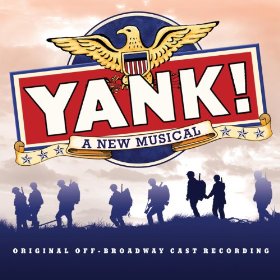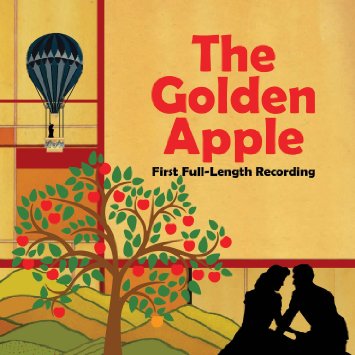The Essentials of Cast Recordings
Those of us who love musical theatre and spend our time celebrating it's wonders know that the experience of seeing a musical is not complete until the show has been preserved in a cast recording. Indeed, a show is easily forgotten and not afforded as many future productions without a chance to share the flavor of it's music with listeners who didn't get a chance to see it's original production. The companies that make cast recordings are often the heroes that give musicals their longevity, and when a show goes unrecorded, it is far less likely to have a life in regional theatres, summer stock companies and community theatres.
In the past, it was quite common for musicals, even if they weren't giant hits, to receive cast recording (not soundtracks, for those who don't know there is a difference). Without the preservation of flop musicals, would we even be aware that there is terrific music in The Baker's Wife, The Grass Harp, Maggie Flynn or Flahooley? These musicals have much to recommend and continue to live on thanks to those generous souls who saw to it that they stick around.
Scene from Happiness at Lincoln Center Theatre.
Case in point: a few years ago I was delighted by the Off-Broadway production of Scott Frankel and Michael Korie's Happiness that played at Lincoln Center's Mitzi Newhouse Theatre. It was a charming ensemble piece, full of touching moments, a life-affirming message, and songs that refuse to exit my brain. The musical is perfectly sized for theatres that don't have a lot of space and I was sure that it would be performed everywhere. I was also sure that it would recorded, after all, it had been created by the team who had assembled the much-beloved Grey Gardens.
Happiness was not recorded, and now I have this wonderful musical playing non-stop in my memory, but no cast album to commit to memory. What is worse, this little gem will rarely see the light of day in future productions because people will never know how lovely it is. A cast album would change that.
Critics didn't adore Happiness (nor did they hate it) and it didn't run for months and months at Lincoln Center, so this probably hurt it's chances of preservation. I am told that, nowadays, for many cast recordings to be commercially viable, the producing organization of the stage production now has to assist in production costs of the recording. For a show that is in a limited run, at a not-for-profit, and unlikely to make a lot of money for the producing organization, it is cost-prohibitive to make that kind of investment in a recording. Producers of cast albums can certainly shoulder the full financial burden, but if there is no financial reward of breaking even or, even better, making a profit, where is the incentive?
Preserving art is a noble incentive, and some cast album producers do find a way. Nowadays, with the advent of online funding campaigns, an audience can embrace a piece and help make the recording happen. (I was thrilled to be able to contribute fifty of my own dollars toward the making of the Yank! recording). It has also been a useful fundraising tool for young composers and artists to get their projects produced.
In recent years, cast album producers like PS Classics have taken the courageous leap of making new recordings of shows that were given short shrift the first time around (such as their magical new recording of The Golden Apple). Can I cross my fingers and hope that they will someday be moved to lovingly produce a studio recording of Happiness?
The cast recording is a staple of the musical theatre experience and it is often taken for granted. It is an essential part of preserving a show and making it accessible for generations to come. We need to support their creation. That is also essential.










